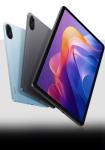'Cell', a wonder chip that is 10 times more powerful than conventional chips and can drive massive amounts of data very fast over broadband networks, was jointly unveiled by IBM, Sony Corp and Toshiba Corp on Monday in the US.
The new 'Cell' processor -- also dubbed 'a supercomputer on a chip -- is likely to run next-generation computers, game consoles and high definition televisions.
In a joint release, the three firms gave a peep into their plans for Cell-powered products, but did not reveal technical details, which will be disclosed on February 6 at the International Solid State Circuits Conference in San Francisco.
IBM and Sony are testing the workstation run by the Cell chip likely to be used video game makers and special effects producers. For this, the Cell will have separate microprocessors that handle specifically assigned jobs simultaneously and allow for data to be transmitted or received at high speeds over broadband lines. It is like the chip has 'multiple brains' inside.
IBM, Sony and Toshiba are investing billions of dollars to develop and prepare for mass production of Cell, which is a 64-bit power processor core as well as multiple processor cores that work together to handle multiple tasks at the same time.
"In the future, all forms of digital content will be converged and fused onto the broadband network," Ken Kutaragi, executive deputy president and COO of Sony, said in a press release. "Current PC architecture is nearing its limits."
IBM said it would start pilot production of the microprocessor at its plant in East Fishkill, N.Y., in the first half of 2005. Mass production of the chip will begin in 2006.
With Cell, video game makers and special effects people will be able to create products in a fraction of the time it takes now, reducing costs drastically.
The chip will be used for products such as Sony and Toshiba high-definition television sets, a 'home server for broadband content' from Sony and the next generation of the Sony PlayStation videogame system.
The new chip is expected to give stiff competition to Intel Corp, the world's largest maker of computer microchips. The company's microprocessors power more than 80 per cent of the world's personal computers.





